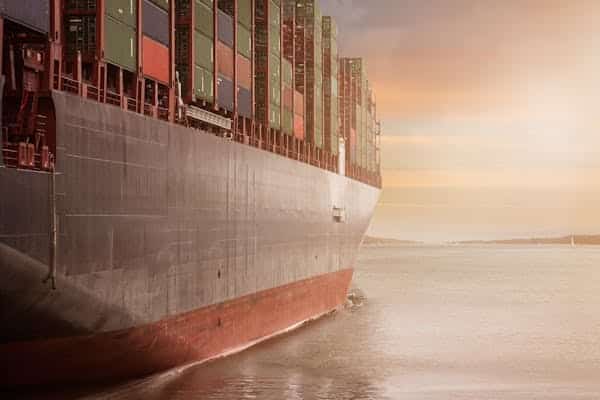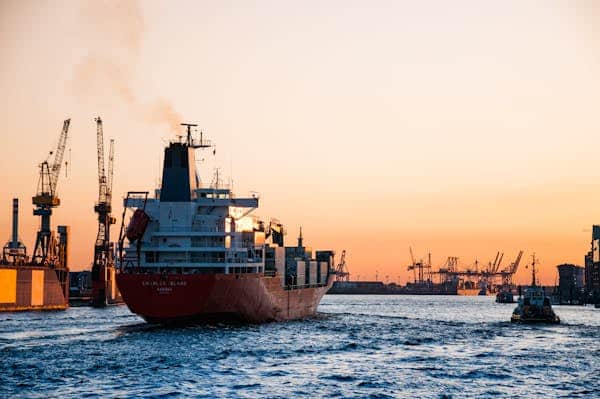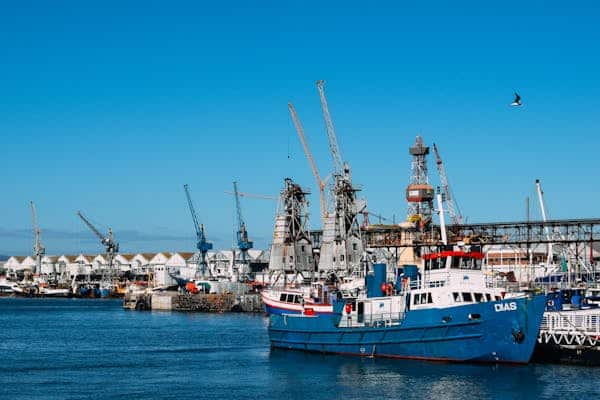The Future of Marine Cargo Insurance Policy
Marine cargo insurance policy industry is evolving rapidly, driven by global trade dynamics and advancements in technology. As cargo claims increase, particularly due to factors like supply chain disruptions and misdeclared cargo, the need for innovative insurance solutions becomes paramount. The future of marine cargo insurance policies is set to integrate more risk management strategies and technology while offering diverse career opportunities for youth interested in joining this vital sector.
With the rise in global ocean marine insurance premiums, particularly in the wake of post-pandemic trade recovery, young professionals have a chance to carve out successful careers. Many companies are focusing on sustainability and integrating Environmental, Social, and Governance (ESG) criteria into their operations. This shift not only fosters a responsible approach to business but also creates numerous entry points for today’s youth looking to make an impact in the insurance field.
The Youth Maritime Career Launch Program, for instance, highlights this commitment to workforce development, aiming to provide opportunities for economically disadvantaged youth. By participating in programs like these, young individuals can learn about marine cargo insurance while contributing to a sector that is critical to international trade and sustainability efforts.

Evolution of Marine Cargo Insurance
The marine cargo insurance sector has undergone significant transformation, shaped by historical practices, emerging technologies, and environmental challenges. Understanding this evolution offers valuable insights into the factors influencing current policies and future developments.
Historical Overview
Marine cargo insurance traces its origins back to ancient trading practices. Early forms of this insurance included bottomry and respondentia bonds, which were used to secure loans against cargo losses at sea. As global trade expanded during the Age of Exploration, the need for more structured insurance evolved.
By the 17th century, marine insurance policies began to formalize through institutions such as Lloyd’s of London. These policies provided greater security against loss, theft, and damage. Over the years, legal frameworks and underwriting practices emerged, allowing for better risk assessment and claims handling. This historical foundation has shaped modern marine cargo insurance, reflecting the complexities of today’s global trade environment.
Recent Technological Advancements
Recent technological advancements have revolutionized the marine cargo insurance industry. Digital platforms and blockchain technology have enhanced transparency and efficiency in policy management and claims processing.
For example, real-time tracking systems allow insurers to monitor cargo conditions throughout transit. These technologies help mitigate risks associated with loss or damage. Insurers are leveraging data analytics to assess risks more accurately and tailor coverage accordingly.
Additionally, the rise of InsurTech companies is promoting innovation, with new policy options and customer engagement methods. As technology continues to evolve, it will further integrate into marine cargo insurance, streamlining processes and enhancing overall service quality.
Impact of Climate Change on Policies
Climate change poses significant challenges to the marine cargo insurance landscape. Increased frequency of extreme weather events has heightened risks associated with shipping. Insurers are now facing the need to adjust their policies to account for these emerging risks.
As a result, many companies are re-evaluating their coverage terms and conditions. This includes implementing stricter protocols for risk assessment, especially in vulnerable regions.
Furthermore, environmental regulations are prompting insurers to consider sustainability factors in their underwriting processes. This shift underscores the importance of adapting to climate-related risks, ensuring that policies remain relevant in a changing environment.
Current Global Marine Insurance Landscape
The global marine insurance landscape is shaped by evolving market dynamics, regulatory frameworks, and risk management strategies. Understanding these components is essential for stakeholders navigating this complex field.
Market Dynamics
The marine insurance market is experiencing growth, with the global premium base reaching approximately USD 35.8 billion in 2022, a rise of 8.3% compared to the previous year. This surge is largely attributed to a post-pandemic recovery in global trade, driving demand for comprehensive insurance solutions.
Key players in the market include established insurance providers and new entrants utilizing advanced technologies to enhance service delivery. The integration of digital tools allows for more precise risk assessment and streamlined claims processing, attracting a broader client base.
Additionally, fluctuations in global trade and shipping volumes impact marine insurance requirements, necessitating agile approaches by insurers to adapt to changing market conditions.
Regulatory Environment
The regulatory environment surrounding marine insurance is becoming increasingly intricate. Different jurisdictions impose varying standards concerning coverage, claims processing, and consumer protection. Insurers must navigate compliance issues that arise from international trade.
Regulatory bodies focus on transparency and risk mitigation strategies, leading to more stringent requirements for underwriting practices. This shift focuses on ensuring that marine insurers maintain solvency while adequately addressing environmental, social, and governance (ESG) issues in their operations.
Furthermore, the rise of digital platforms calls for regulations that address cybersecurity risks in marine insurance. Insurers are tasked with fulfilling compliance obligations while fostering innovation in a competitive market.
Risk Management Strategies
Effective risk management is essential for mitigating potential losses in the marine insurance sector. Insurers are increasingly employing data analytics and machine learning to assess and predict risks more accurately.
Common risk management strategies include:
Conducting thorough risk assessments of insured assets and operations.
Implementing loss prevention programs to minimize the frequency and severity of claims.
Utilizing reinsurance strategies to spread risk and enhance financial stability.
Collaboration between insurers and shipping companies enhances risk-sharing and effective response strategies. This partnership model not only strengthens financial resilience but also fosters a culture of safety and compliance within the industry.
Career Opportunities in Marine Insurance
The marine insurance sector is evolving, presenting numerous career opportunities for youth. As the industry adapts to new challenges, graduates can explore diverse roles that require specific skills and innovative thinking.
Emerging Roles for Youth
In marine insurance, various emerging roles cater to the next generation. Some key positions include:
Underwriters: Responsible for assessing risks and determining policy terms. A solid understanding of maritime risks is essential.
Claims Adjusters: They handle claims from policyholders, ensuring fair evaluations of losses. Communication and negotiation skills are vital for this role.
Risk Managers: They analyze and mitigate risks associated with maritime operations. A background in data analysis helps in making informed decisions.
These positions allow youth to contribute actively to the industry’s growth and adapt to technological advancements.
Skill Development and Education
To excel in marine insurance, youth must focus on relevant education and skill development. Key areas to consider include:
Degrees: Pursuing a degree in marine biology, business administration, or finance can provide a solid foundation.
Certifications: Obtaining certifications such as the Chartered Property Casualty Underwriter (CPCU) or Associate in Marine Insurance Management (AMIM) enhances job prospects.
Technical Skills: Familiarity with digital tools, risk assessment software, and data analytics is increasingly important.
Investing in these skills equips young professionals to meet the demands of a rapidly changing industry.
Innovation and Entrepreneurship
The marine insurance landscape is ripe for innovation, encouraging youth to explore entrepreneurial ventures. Opportunities include:
Startups: Young entrepreneurs can develop technology-driven solutions, such as platforms for evaluating maritime risks or managing claims processes more efficiently.
Consulting Services: Providing expertise in specialized fields like cyber risk management or sustainability in shipping can attract a niche market.
Collaborative Projects: Engaging in joint ventures with established firms can help youth bring fresh ideas while benefiting from experienced partners.
These initiatives foster new models in insurance, driving progress and adaptability in the sector.
Challenges and Solutions
The marine cargo insurance policy sector faces significant challenges that impact both policy formation and career opportunities. Key issues include cybersecurity threats and the complexities of global supply chains, each presenting unique problems that require targeted strategies.
Cybersecurity Threats
As the maritime industry increasingly relies on digital technology, cybersecurity has become a major concern. Shipping companies and insurance providers face heightened risks from cyberattacks that can disrupt operations and expose sensitive data.
Notable statistics demonstrate the severity of the issue:
- 60% of shipping companies have reported experiencing a cyber incident.
- Costs associated with data breaches can exceed $3.9 million per incident.
To combat these threats, stakeholders should invest in robust cybersecurity frameworks. This includes employee training, regular system upgrades, and establishing incident response protocols. Policies should also adapt to cover losses stemming from cyber events, ensuring comprehensive protection for cargo and operations.
Supply Chain Complexities
The global nature of the maritime industry has led to increasingly complex supply chains. Factors such as geopolitical tensions, changing trade regulations, and environmental concerns can cause disruptions.
These complexities lead to:
- Increased risk of cargo damage and loss.
- Greater potential for delays, resulting in financial repercussions for insurers.
To address these challenges, insurance providers should implement data analytics to assess risks effectively. They can focus on real-time tracking of shipments, enabling quicker identification of potential issues. Additionally, fostering strong relationships with stakeholders can enhance collaboration and improve resilience against disruptions.

Future Outlook of Marine Cargo Insurance
The marine cargo insurance industry is evolving swiftly. Key advancements in predictive analytics, sustainable practices, and shifting global trade dynamics are shaping its future. These changes present opportunities and challenges for stakeholders in the sector.
Predictive Analytics and Big Data
Predictive analytics and big data are becoming essential in marine cargo insurance. Insurers use advanced algorithms to assess risks more accurately. This technology analyzes vast amounts of data, including historical claims, weather patterns, and transportation routes.
By leveraging big data, insurers can customize policies and pricing. Enhanced risk assessments lead to improved underwriting decisions. This innovation not only benefits insurers but also offers more tailored products for clients, making insurance coverage more relevant and accessible.
Sustainability in Underwriting Practices
Sustainability is increasingly influencing underwriting practices in marine cargo insurance. Insurers are now considering environmental impacts when assessing risks. This shift encourages the adoption of eco-friendly policies and practices.
Insurers are evaluating the carbon footprints of shipping companies and the environmental practices of cargo owners. By prioritizing sustainable operations, companies can secure more favorable insurance terms. This trend reflects a growing awareness of climate change and its effects on the industry, fostering a culture of responsibility.
Global Trade and Policy Implications
Global trade dynamics significantly affect marine cargo insurance. As international trade continues to expand, the demand for comprehensive insurance coverage rises. Changes in trade policies, such as tariffs and regulations, influence the market landscape.
Trade agreements can streamline operations and alter risk profiles for insurers. Additionally, geopolitical tensions may lead to increased scrutiny of shipping routes and cargo, impacting coverage needs. Insurers must remain agile to adapt to these evolving trade environments and ensure they meet client demands effectively.

4 thoughts on “The Future of Marine Cargo Insurance Policy: Exploring Career Opportunities for Youth”